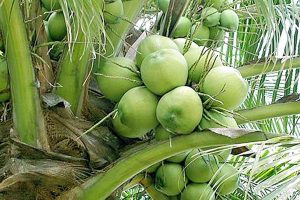THE PHILIPPINES needs to upgrade coconut production in the face of increased demand from the US and European Union (EU), an industry group said.
“What we are facing right now is actually a good problem; we need more coconuts to export,” United Coconut Association of the Philippines, Inc. Chairman Marco C. Reyes told an online forum organized by the Philippine Manufacturing Team on Friday.
He said that Philippine coconut exports have been growing substantially since 2021.
“From 2023 to 2024 alone, exports jumped 43%. Now it accounts for $700 million of export revenue, and it is still increasing,” he added.
He said that this makes the availability of coconuts a main concern for the industry.
“The reason is we have no competition from the US. They have their own oils — soybean oil, corn oil, and canola oil — but they are not substitutable for our coconut oil,” he added.
He said the Philippines’ long track record as supplier of coconut products to the US mitigates concerns about the 17% tariff assigned to Philippine goods, including coconut oil.
“Our 17% tariff is the lowest among all the other coconut-producing competing countries with tariffs that range from 26% to 42%,” he said.
“The Department of Trade and Industry (DTI) is negotiating with the US to bring the tariff to zero percent, because the other competing countries are also negotiating with the US to bring down their tariffs,” he added.
He said that the US reciprocal tariffs are a “temporary situation” that will not distract the industry from executing its roadmap.
“These are mostly three things: value addition, expansion of the export markets, and more investment,” he added.
In the short term, he said the industry sees a supply constraints.
“Because of El Niño and the coconut trees being really stressed, the harvest has been much lower. Many coconut trees in the Philippines are senile, so the yield now is much lower,” he said.
“The main goal now for the Philippine coconut industry, which the Philippine Coconut Authority is also aware of, is to really plant more coconut trees,” he added.
He said that exporters of coconut are also expecting an increase in orders from the EU next year.
“Most of our exports go to Europe, and by next year they will have the EU Deforestation Regulation, which heavily favors our coconut,” he said.
“We will have a lot of demand coming from the EU and the US, so we need to plant more coconuts because Indonesia, Thailand, and India are planting heavily,” he added. — Justine Irish D. Tabile






